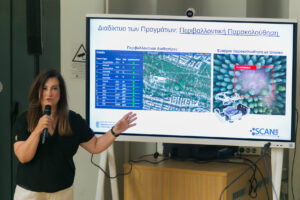Huawei and its partners – the National and Kapodistrian University of Athens (NKUA) and the startup Probotek – have completed testing of a forest fire prevention system in Greece.
Real-time wildfire detection
The partners tested the real-time detection system using a smoke and fire simulation. The solution, developed under Huawei’s TECH4ALL initiative, will reportedly enable emergency services to respond to potential forest fires within 15 minutes, the timeframe within which fire risks can be best controlled.
Ren Fujun, CEO of Huawei‘s southeast European region, said, “For the past 20 years, Huawei has introduced leading technologies to Greece, believing in the power of innovation to protect the environment, preserve biodiversity and ensure the safety of citizens and their property.”
AI and drone integration for fire detection
Conducted by NKUA and Probotek, the smoke and fire simulation test took place at NKUA’s premises in a forested area of Athens. Connected by Huawei’s network technologies, sensors in the forest prompted the command center to deploy an automated drone to the test site.

Based on video footage transmitted by the drone, coupled with meteorological and geomorphological data, AI analysis was able to identify fire and smoke events in real time and predict the fire’s path and the area it would cover; the time it would take for the fire to reach inhabited areas; which areas would be at risk from fires and require evacuation; and information about evacuation routes.
The emergency response system comprises an AI-based command center networked to 5G-connected drones and sensors that detect particles in the air, CO2, temperature, wind direction and speed.
The first phase of the solution, which was introduced in 2022 at the Syggrou Estate near Athens, used drones and AI to detect fires. The new solution extends the system’s functionality to provide fire spread analysis, evacuation planning and route planning for fire trucks and ambulances. It can also estimate how many people in the area will be affected by the fire, and send personalized notifications via an app to residents’ phones, suggesting evacuation routes based on the municipality’s civil protection plans.
The system sends evacuation routes to an app on residents’ phones (languages, including Greek, can be selected by users). The solution as a whole will enable rapid-response evacuation protocols that are projected to save lives and mitigate the extensive damage to land and property that wildfires typically cause.

In related news, the University of Reading recently released a study that highlights the rapid progress and transformative potential of AI in weather prediction through an analysis of November 2023’s Storm Ciaran. Click here to read the full story.



